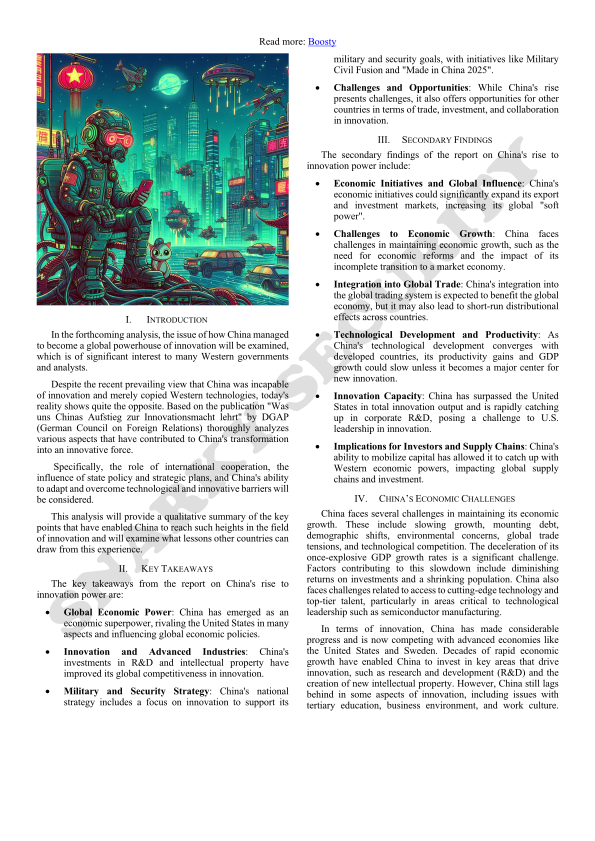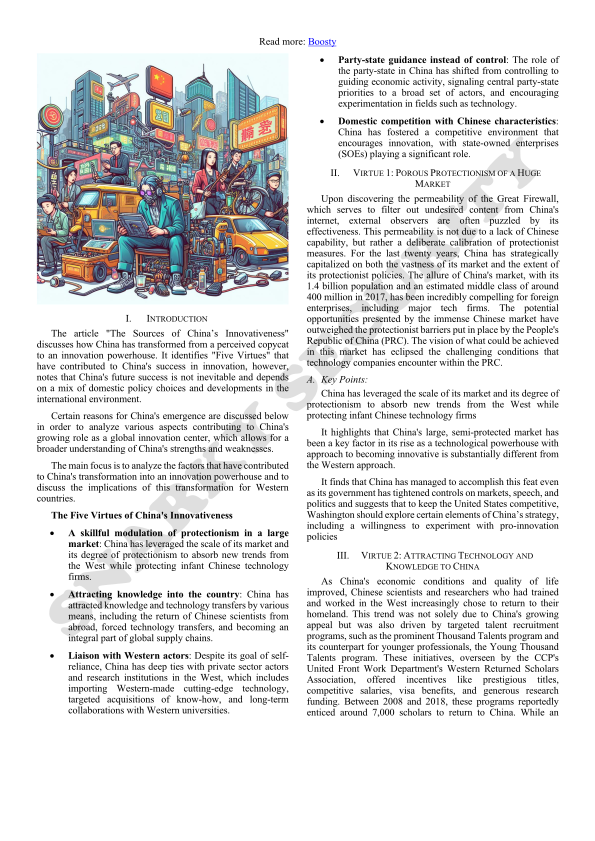The use of different GPS standards or the implementation of GPS jamming and spoofing in India, Israel and Palestine, North Korea, Westchester County, New York, and Antarctica is driven by various strategic, security, and environmental factors
China
📌BeiDou Navigation Satellite System (BDS): China uses its own BeiDou system, which has been recognized as a global standard for commercial aviation and other applications. It provides both civilian and military services and is part of China’s strategy to achieve technological self-sufficiency and reduce dependency on the U.S. GPS.
📌Obfuscation Algorithm: The GCJ-02 system, also known as «Mars Coordinates,» uses an obfuscation algorithm that introduces random offsets to latitude and longitude coordinates. This is intended to prevent accurate mapping by foreign entities, which could be used for military or intelligence purposes.
📌Legal Framework: The Surveying and Mapping Law of the People’s Republic of China mandates that all geographic data must be processed using the GCJ-02 system. Unauthorized mapping or surveying activities are strictly prohibited and can result in severe penalties, including fines and legal action. Companies providing location-based services in China must obtain authorization from the Chinese government and use the GCJ-02 system. This includes purchasing a «shift correction» algorithm to align GPS coordinates correctly on maps.
📌Cold War Era: The use of a different coordinate system dates back to the Cold War era, aimed at frustrating foreign intelligence efforts. The GCJ-02 system continues to serve this purpose by ensuring that geographic data within China cannot be easily used for unauthorized purposes.
📌Daily Navigation: For users in China, this means that GPS devices and applications may show their location inaccurately on maps unless they use local services like Baidu Maps, which also employs an additional layer of obfuscation called BD-09.
📌Device Restrictions: Many GPS-enabled devices, including cameras and smartphones, have restrictions or modifications to comply with Chinese laws. This can include disabling geotagging features or using modified GPS chips that align with GCJ-02.
India
📌Indian Regional Navigation Satellite System (IRNSS): India has developed its own regional navigation system, known as NavIC (Navigation with Indian Constellation), to reduce dependency on foreign GPS systems like the U.S. GPS. This system ensures regional self-reliance, enhances positioning accuracy, and provides strategic advantages, especially for military operations.
📌Strategic Autonomy: The development of NavIC was partly motivated by the denial of GPS data by the U.S. during the Kargil War in 1999. NavIC provides India with an independent and reliable navigation system that can be used for both civilian and military purposes.
Israel and Palestine
📌GPS Jamming and Spoofing: Israel uses GPS jamming and spoofing as defensive measures to protect against potential attacks from adversaries like Hezbollah and Iran. This jamming can disrupt enemy navigation systems and precision-guided weapons, but it also affects civilian GPS services, causing inaccuracies in location data for apps like Google Maps and Uber.
📌Security Measures: The use of GPS jamming is primarily for defensive purposes, to prevent the use of GPS-guided munitions by adversaries. This has led to significant disruptions in civilian navigation and communication systems in the region.
North Korea
📌GLONASS and BeiDou: North Korea avoids using the U.S. GPS due to concerns about potential disruption by the U.S. military. Instead, it uses Russia’s GLONASS and China’s BeiDou systems for its navigation needs, including missile tests.
📌GPS Jamming: North Korea has been known to jam GPS signals, particularly in the Yellow Sea, as a means of disrupting South Korean and allied military operations. This jamming can affect civilian aircraft and ships, leading to navigation challenges.
📌Limited Access: The general population in North Korea has limited access to GPS-enabled devices and the internet, making the impact of GPS jamming more significant for external entities rather than for daily civilian use within the country.
Westchester County, New York
📌Security-Related Blurring: Certain locations in Westchester County are intentionally blurred on Google Maps to prevent potential terrorist attacks. This measure is taken to protect sensitive sites and infrastructure, but it can hinder accurate navigation for residents and visitors.
📌Impact on Navigation: The blurring of maps can make it difficult for users to find specific locations, affecting daily navigation and potentially leading to confusion.
Antarctica
📌GPS: Antarctica primarily relies on the U.S. GPS for navigation and scientific research. The harsh environment and dynamic ice landscape present unique challenges, but GPS remains the most accurate and reliable system available for this region.
📌Common Mode Errors (CME): Antarctica does not use a different GPS standard, but the region faces unique challenges due to common mode errors in GPS coordinate time-series. These errors are caused by environmental factors and systematic issues, affecting the accuracy of GPS measurements used for scientific research and navigation.
📌Harsh Environment: The extreme conditions and vast, featureless ice landscapes make high-resolution mapping difficult. Specialized techniques and equipment are required to achieve accurate GPS data, which is crucial for scientific studies and logistical operations.
Impact
Inaccurate mapping systems can significantly impact daily navigation in various regions around the world, including China, India, Israel and Palestine, North Korea, Westchester County in New York, and Antarctica.
China
Misalignment of Maps and GPS Data
📌Offset Issues: The GCJ-02 system introduces random offsets to latitude and longitude, ranging from 50 to 500 meters. This results in GPS coordinates (based on the global WGS-84 system) not aligning correctly with Chinese maps, which use GCJ-02.
📌Practical Impact: For users, this means that GPS devices and applications may show their location inaccurately on maps. For example, a GPS coordinate might place a user in a different part of a city than their actual location.
Challenges for Foreign Mapping Services
📌Google Maps: Google Maps in China must use the GCJ-02 system for street maps but uses WGS-84 for satellite imagery, causing visible misalignments between the two. This discrepancy can make navigation difficult for users relying on Google Maps.
📌Other Services: Similar issues affect other foreign mapping services, which must either comply with GCJ-02 or face inaccuracies. Unauthorized mapping or attempts to correct the offsets without approval are illegal.
Local Solutions and Workarounds
📌Chinese Apps: Local apps like Baidu Maps and WeChat use the GCJ-02 system and often provide more accurate navigation within China. Baidu Maps even uses an additional layer of obfuscation called BD-09.
📌Conversion Tools: Several open-source projects and tools exist to convert between GCJ-02 and WGS-84 coordinates, helping developers and users mitigate some of the navigation issues.
Legal and Security Implications
📌Regulations: The Chinese government enforces strict regulations on geographic data to protect national security. Unauthorized mapping activities can result in severe penalties, including fines and legal action.
📌Device Restrictions: Many GPS-enabled devices, including cameras and smartphones, have restrictions or modifications to comply with Chinese laws. This can include disabling geotagging features or using modified GPS chips that align with GCJ-02.
India
📌Routing Issues: Google Maps in India often suggests inefficient or incorrect routes, such as diverting users through small villages or bad road patches when better roads are available. This can lead to longer travel times and confusion, especially for first-time users.
📌Residential Colonies: The app sometimes directs users through residential colonies, which may have restricted access or closed gates, causing further navigation problems.
📌Taxi Services: Users of taxi-hailing apps like Uber and OLA frequently experience inaccuracies in the location of cars and their own position, necessitating phone calls to drivers for precise directions.
Israel and Palestine
📌Biased Routing: Google Maps prioritizes routes for Israeli citizens, often ignoring the segregated road system and checkpoints that affect Palestinians. This can result in suggested routes that are illegal or dangerous for Palestinians to use.
📌Omission of Palestinian Localities: Many Palestinian villages and localities are either misrepresented or omitted from maps, which can alienate Palestinians from their homeland and complicate navigation within these areas.
📌Political Bias: Maps often reflect political biases, such as labeling Israeli settlements clearly while Palestinian areas are left blank or inaccurately labeled. This affects the usability of maps for Palestinians and can lead to significant navigation challenges.
North Korea
📌Limited Data: While Google Maps has started to include more detailed information about North Korea, the data is still limited and often outdated. This makes it difficult for users to navigate accurately within the country.
📌Restricted Access: The majority of North Koreans do not have access to the internet or GPS-enabled devices, rendering the available mapping data largely useless for local navigation.
Westchester County, New York
📌Blurring for Security: Certain locations in Westchester County are intentionally blurred on Google Maps to prevent potential terrorist attacks. This can hinder accurate navigation and make it difficult for users to find specific locations.
📌General Inaccuracies: The map data may not always reflect the most current or precise information, which can affect navigation for residents and visitors alike.
Antarctica
📌Low-Resolution Imagery: Large areas of Antarctica are shown in low resolution or are blurred due to the featureless ice and snow, making high-resolution imaging difficult and largely unnecessary.
📌Survey Challenges: Accurate mapping in Antarctica requires specialized equipment and techniques, such as Differential GPS Surveying, to minimize errors. This can be logistically challenging and expensive, affecting the availability of accurate maps for navigation.
📌Limited Use: The practical need for detailed maps in Antarctica is limited to scientific and logistical operations, rather than daily navigation for the general public
Benefits of Inaccurate Maps for Specific Countries
China
📌National Security: The primary benefit of using the GCJ-02 coordinate system, which introduces intentional offsets, is to protect national security. By obfuscating geographic data, China prevents foreign entities from using accurate maps for military or intelligence purposes.
📌Economic Protectionism: The policy also supports local mapping companies by limiting competition from foreign mapping services, ensuring that only authorized providers can offer accurate maps within China.
India
📌Territorial Integrity: India enforces strict regulations on maps to ensure that its territorial claims, especially in disputed regions like Kashmir and Arunachal Pradesh, are accurately represented. This helps maintain national sovereignty and supports India’s geopolitical stance.
📌Strategic Autonomy: By developing its own regional navigation system (NavIC), India reduces dependency on foreign GPS systems, enhancing both civilian and military navigation capabilities.
Israel and Palestine
📌Security Measures: Israel uses GPS jamming and spoofing to protect against potential attacks from adversaries. This defensive measure disrupts enemy navigation systems and precision-guided weapons, enhancing national security.
📌Political Narratives: Both Israel and Palestine use maps to support their respective territorial claims. Inaccurate or biased maps can influence public perception and international opinion, which is crucial in the ongoing conflict.
North Korea
📌Military Defense: North Korea employs GPS jamming to disrupt foreign military operations, particularly those of South Korea and its allies. This measure complicates navigation for adversaries, providing a strategic defense advantage.
📌Controlled Information: The limited and outdated mapping data available within North Korea helps the regime maintain control over information and restricts the population’s access to external geographic data.
Westchester County, New York
📌Security Concerns: Certain locations in Westchester County are intentionally blurred on maps to prevent potential terrorist attacks. This measure protects sensitive sites and infrastructure from being targeted.
Antarctica
📌Environmental Protection: Inaccurate or less detailed maps can help protect sensitive environmental areas by limiting human activity and reducing the risk of exploitation or damage.
📌Scientific Research: The dynamic and harsh environment of Antarctica makes accurate mapping challenging. However, the focus on improving mapping accuracy supports scientific research and environmental management.
Drawbacks for Other Countries
📌Navigation Challenges: Inaccurate maps can lead to significant navigation issues for travelers, businesses, and emergency services. This can result in inefficiencies, increased travel times, and potential safety hazards.
📌Economic Impact: Businesses that rely on accurate geographic data, such as logistics and delivery services, can face operational challenges and increased costs due to map inaccuracies.
📌Geopolitical Tensions: Inaccurate maps can exacerbate territorial disputes and contribute to geopolitical tensions. Misrepresentation of borders and territories can lead to conflicts and diplomatic issues.
📌Scientific Limitations: In regions like Antarctica, inaccurate maps hinder scientific research and environmental management. Accurate geographic data is crucial for studying climate change, managing natural resources, and protecting ecosystems.
📌Public Misinformation: Inaccurate maps can mislead the public and perpetuate misinformation. This can affect education, public opinion, and policymaking, leading to a less informed society.














